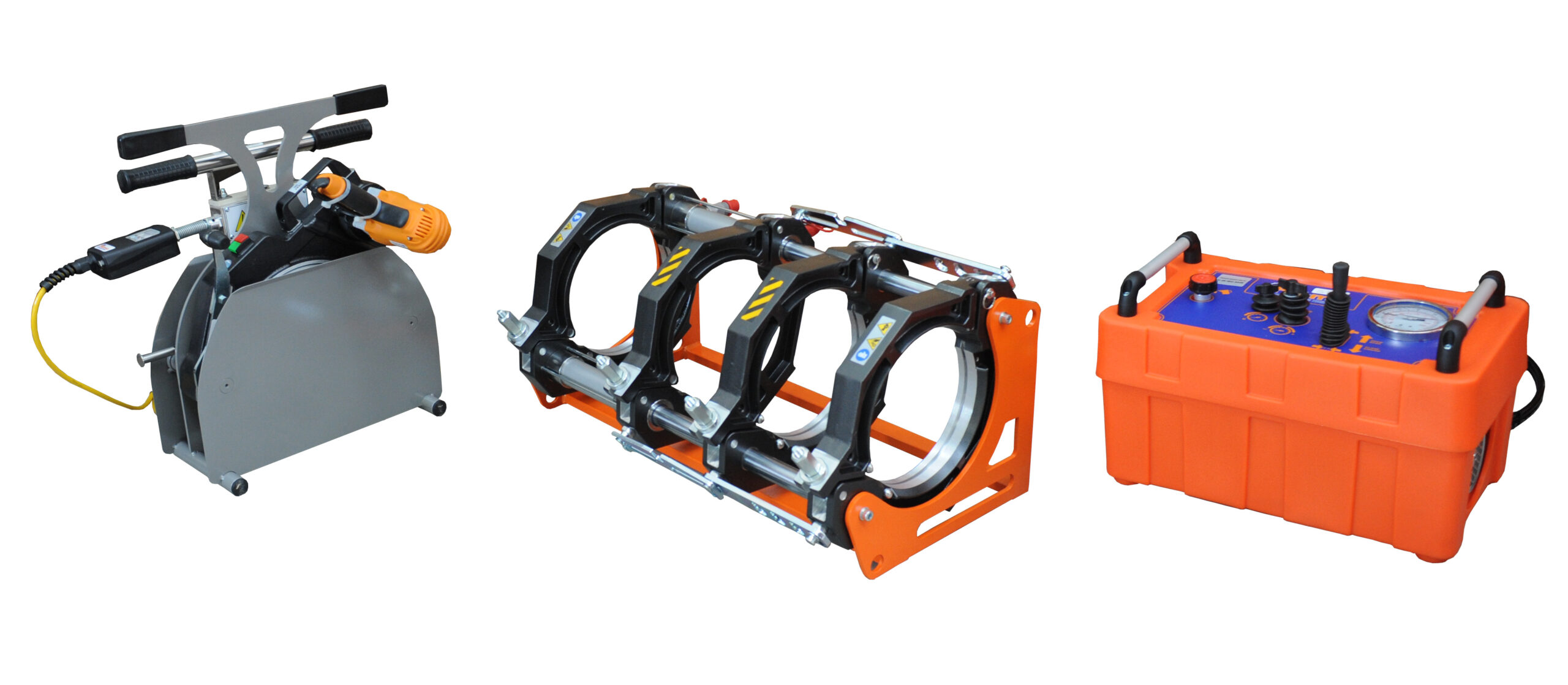High-Density Polyethylene (HDPE) is a versatile and durable material widely used in various industries, especially in pipeline construction. Joining HDPE pipes requires specialized equipment to ensure strong, reliable, and leak-proof connections. This article will delve into HDPE welding machine equipment, its types, applications, and benefits. For those seeking high-quality HDPE welding machines, JS PIPE offers a range of products designed to meet industry standards and deliver exceptional performance.
Understanding HDPE Welding Machines
HDPE welding machine is specifically designed to join HDPE pipes using different welding techniques. These machines ensure that the welded joints are as strong as the original pipes, providing durability and longevity to the pipeline systems. There are several types of HDPE welding machines, each suited for specific applications and requirements.
Types of HDPE Welding Machines
- Butt Fusion Welding Machines:
- Butt fusion welding is the most common method for joining HDPE pipes. The process involves heating the ends of the pipes and pressing them together to form a strong, seamless joint.
- Butt fusion welding machines ensure precise alignment and consistent heating, resulting in high-quality welds.
- These machines are ideal for large-diameter pipes and are widely used in water supply, gas distribution, and industrial piping systems.
- Electrofusion Welding Machines:
- Electrofusion welding involves using special fittings with built-in heating elements. When the fitting is connected to an electrofusion welding machine, it heats up and melts the HDPE material, creating a secure bond.
- Electrofusion welding machines are suitable for smaller-diameter pipes and connections in confined spaces.
- This method is commonly used for repair works, service connections, and areas where butt fusion is not feasible.
- Socket Fusion Welding Machines:
- Socket fusion welding is used for smaller pipes and fittings. The process involves heating the external surface of the pipe and the internal surface of the fitting using a socket fusion machine.
- Once heated, the pipe and fitting are joined together to form a strong bond.
- This technique is commonly used in plumbing, HVAC systems, and small-scale industrial applications.
- Extrusion Welding Machines:
- Extrusion welding is used for fabricating and repairing large HDPE structures such as tanks, containers, and custom-shaped parts.
- The machine extrudes a continuous bead of molten HDPE, which is used to join or repair the material.
- This method is highly versatile and is often used in the manufacturing and repair of HDPE components.
Applications of HDPE Welding Machines
HDPE welding machines are used in a variety of applications due to their ability to create strong, durable, and leak-proof joints. Some key applications include:
- Water and Wastewater Systems: HDPE pipes welded using these machines are extensively used in potable water distribution and wastewater treatment systems.
- Gas Distribution: The leak-proof nature of HDPE welds makes them ideal for gas pipelines, ensuring safety and reliability.
- Industrial Piping: HDPE welding machines are used in chemical plants, mining operations, and other industrial settings where robust piping systems are required.
- Infrastructure Projects: HDPE pipes are used in various infrastructure projects, including irrigation systems, drainage systems, and telecommunications conduits.
Benefits of Using HDPE Welding Machines
HDPE welding machines offer several advantages that make them indispensable in pipeline construction and other applications:
- Strong and Durable Joints: Welded HDPE joints are as strong as the pipes themselves, ensuring long-term durability and reliability.
- Leak-Proof Connections: Properly executed welds prevent leaks, reducing the risk of contamination and fluid loss.
- Cost-Effective: Welding eliminates the need for additional fittings and connectors, saving on material and labor costs.
- Versatile Applications: HDPE welding machines can be used for various pipe sizes and materials, providing flexibility for different projects.
- Environmental Benefits: HDPE pipes and welds are resistant to corrosion and chemical reactions, making them environmentally friendly and suitable for various applications.
For those interested in exploring high-quality HDPE welding machines, JS PIPE offers a range of reliable products designed to meet the demands of modern pipeline construction. Their machines ensure precise, consistent, and high-quality welds, making them a trusted choice in the industry.
To learn more about HDPE welding machine equipment and its applications, visit JS PIPE and explore their extensive range of products.
In conclusion, HDPE welding machines play a crucial role in ensuring the integrity and durability of HDPE pipeline systems. Understanding the different types of welding machines and their applications can help in selecting the right equipment for your needs. For top-tier HDPE welding machines, consider JS PIPE, a trusted name in the industry.
Keep an eye for more news & updates on Webofbuzz!




